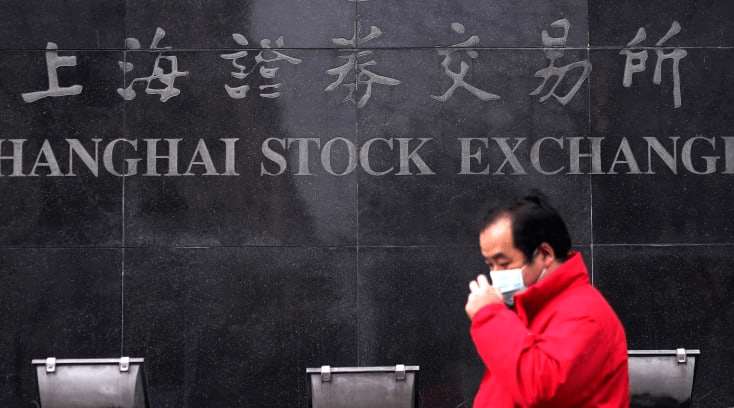Chinese companies are piling into what they see as a window of opportunity to raise billions from global stock markets, amid a host of uncertainties from the coronavirus pandemic to political tensions. Just take Alibaba-affiliated fintech giant Ant Group, which is set to launch its long-awaited, massive initial public offering beginning next week. The dual listing on the Hong Kong Stock Exchange and Shanghai’s STAR board is slated to surpass the record $29.4 billion float by oil giant Saudi Aramco almost a year ago.

The debut of Ant Group builds on a trend. One-fifth of global public listings in the first nine months of this year, or 180 of them, took place on the Shanghai Stock Exchange, according to an Ernst & Young report. That made Shanghai the top market, surpassing second-place Nasdaq’s 119 deals. Add in 115 IPOs in Shenzhen and 99 in Hong Kong, and greater China stock exchanges accounted for 45% of global IPOs in the first three quarters of the year, according to CNBC analysis of data from EY.
Chinese companies are still pursing the U.S. market as well, despite growing pressure from President Donald Trump’s administration to reduce domestic financial ties with China. Lending and wealth management company Lufax plans to list on the New York Stock Exchange with an offering that could raise up to $2.36 billion, according to pricing details disclosed last week.
The IPO comes after 23 companies from mainland China already went public in the U.S. in the first nine months of this year, which accounted for half of cross-border listings in the U.S. during that time, according to EY.
On the other side of the Chinese IPO trend are new regulations from Beijing that make it easier for companies to list: a registration-based system rather than one subject to regulatory approval. By EY’s count, more than 290 companies have listed in Shanghai and Shenzhen so far this year, already surpassing the 200 offerings for all of 2019.
In addition, the Chinese government is encouraging local companies to list on the mainland or Hong Kong, versus abroad. U.S.-listed technology companies JD.com and NetEase are among those who held secondary offerings in Hong Kong this year.
Foreign investors are increasingly interested in China, which the International Monetary Fund predicts will likely be the only major economy to grow this year while the rest of the world contracts. Analysis from China Renaissance released earlier this month showed that as of June, foreign funds held nearly 8% of mainland A-shares available for trading, up from roughly 2% five years ago. A-shares are yuan-denominated stocks of Chinese companies listed on mainland exchanges Shanghai and Shenzhen.
The mainland Chinese stock market is the second largest in the world by market capitalization, but it remains far smaller and decades younger than that of the U.S. High levels of founder ownership and limited availability of shares for trading for many Chinese companies’ stocks creates additional investment risk.
The mainland Chinese stock market has been dubbed a “casino” in past years, given the dominance of retail investors who tend to be more emotionally driven and confident in central government support for prices. Authorities have been trying to allow market forces to play a greater role, while institutional investors have significantly increased their holdings.
Chinese companies are leading the global IPO rush amid a ‘flight from uncertainty’, CNBC, Oct 27